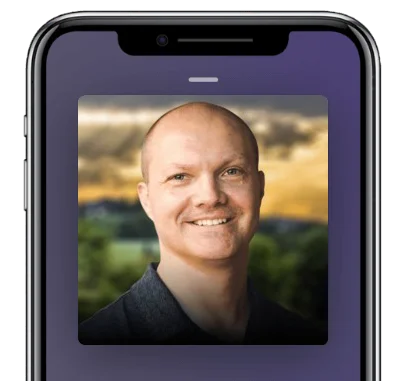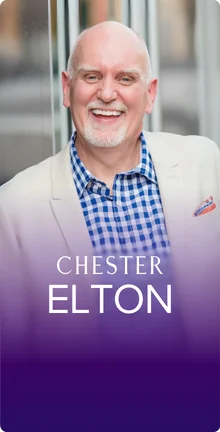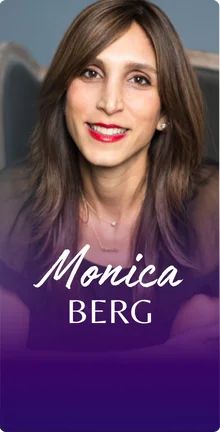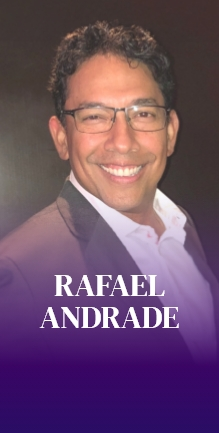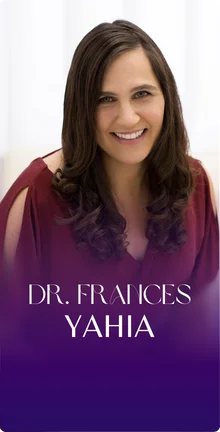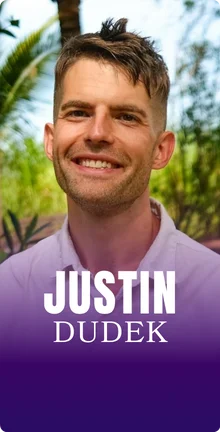In this Episode
- [02:28]Zack Arnold recounts his filmmaking origin and career growth.
- [05:52]Zack shares insights on prioritizing health over career in the post-production industry.
- [10:11]Zack believes ADHD can be a superpower if managed properly, citing examples of spotters in ancient tribes who noticed threats before others.
- [15:53]Stephan and Zack share an experience of practicing mindfulness meditation and being able to discern multiple thoughts happening simultaneously.
- [24:06]Zack describes an exercise for clearing negative energies and entities by imagining a golden explosion of light from the heart center, sending them back to their source for transformation.
- [32:08]Zack discusses the importance of making decisions that matter in the long term.
- [45:04]Zack recounts experiences of seemingly orchestrated events.
- [47:38]Stephan and Zack discuss muscle testing as a tool for checking the truth of thoughts and desire.
- [51:07]Zack reflects on meeting Christopher Rush, a quadriplegic who became a licensed scuba diver and inspired the creation of the Go Far framework for overcoming obstacles and achieving goals.
Zack, it’s so great to have you on the show.
I can’t literally imagine a better fit for the Optimize Yourself podcast than the Get Yourself Optimized podcast. It seems like you and I have a lot to talk about.
Yes, we’re kindred spirits, I think.
I’m very excited to be here and appreciate the opportunity. Thank you.
How did you end up being so focused on optimizing yourself, getting into the Hollywood scene, and everything? There must be a great origin story there.
Yeah. There’s a multitude of origin stories. We could probably do an entire episode on each, but I’ll do my best to keep it short and edit it down. See what I did there?
The original origin story for my interest in filmmaking and editing goes all the way back to when I was about nine years old. Back in the days of VHS players and camcorders, you had to hold on the top of your shoulder. My older brother had come home with a VHS camcorder and said, “Let’s run around the house and make a movie.” I’m like, “Oh, okay, that sounds fun.”
We spent the entire weekend chasing each other with Nintendo Duck Hunt guns and just putting all this stuff together. We spent the entire weekend, 12-14 hour days in the middle of summer, absolutely miserable. I hated the process, and he showed me what we had. It was seven minutes long, and I was like, “Seriously, we did all this work, and this is all we got?”
Your health and your career are not mutually exclusive. You don't have to choose one or the other. Share on XTwo weeks later, he came back and showed me the same thing, but he had scored it with music from The Good, the Bad, and the Ugly. My jaw dropped, and I said, whatever you did is the coolest thing I’ve ever seen. Show me how you did that. At the time, two VHS players connected with a cassette recorder, and you hit play and play on your main VHS and your cassette recorder to dub the picture with the music. I’m like, “This is the coolest thing I’ve ever seen. It’s better than porn. Teach me.”
I spent years and years shooting everything that I possibly could, shooting it out of order and making it random because I loved the process of putting it together. I didn’t realize at the time that it was not only a thing, but it was a profession. It was just my obsession. That’s all that I did. I would take movies I loved and create highlight reels and compilation reels of my funniest scenes or best action scenes until I realized this is a skill and a profession.
From there, I went to college at the University of Michigan. I studied film theory and film studies. I spent much more time watching old Russian films and writing papers about them than I did making films, but I learned the importance of story and structure.
During all of the breaks between classes, nights, weekends, and summers, I was learning the editing software. I was taking on side gigs to learn how to edit, which brought me six days after graduation to land my first job in Los Angeles in the industry. I started working my way up from an assistant editor at a trailer house to an editor at that trailer house, to freelance editing, to having my first feature film editing job three years out of school, which is unheard of in our industry.
If you want to improve your career, improving your health is a necessary part of that process.
At the time, I considered myself a machine. I could work 20 hours a day and do whatever it took. I was just going to deliver whatever level I needed to move my career forward until I realized, “Oh, so that’s not only not sustainable, the human body and the human brain can’t sustain that level of work, specifically creative work.” I completely crashed and had probably the worst of what has now become many scenarios, where I dealt with the trifecta of massive anxiety, depression, and complete burnout.
I had my first realization that to achieve my goals, I just can’t move forward, push through, and live like the #hustleculture 24/7. I will have to find a more sustainable way to do it.
I had no idea I was already starting the Optimize Yourself program because this was years before I turned it into something. I started looking into standing desks, how to eat better nutrition so I can be creative for longer, and how to restructure my days. It was probably at least seven or eight years of just my trial and error until I realized that I was onto something because a lot of my colleagues were coming to me saying, “How is it that you’re number one getting such a fast escalation in your career of the credits and the studios you’re working with, but frankly, you’re also in really good shape.”
Most people who work in post-production and editing or any kind of knowledge work, as they get older, they get heavier, they get more lethargic, and they’ve aches and pains. And I appear to be getting younger instead of older. People started to ask me, and I’m like, “Oh, maybe this is a thing.”
I started a podcast, which at the time was called The Fitness in Post. Instead of Fix It in Post, now it’s time to fitness and post. How do I combine exercise and working in post-production? That started an organic movement in my sector of the industry, where people realized that your health and your career are not mutually exclusive. You don’t have to choose one or the other. If you want to improve your career, improving your health is a necessary part of that process.
What I heard people say all the time, and it drove me crazy, is that “I don’t have time to focus on my health or can’t afford it. It’s really expensive.” And then, in the next Facebook post, they would say, “Hey, I just spent $7000 on this new RAID. I’m optimizing my throughput in my bandwidth for editing footage.” I’m like, “You guys are optimizing the wrong thing. You’re trying to optimize your hard drive space, you’re trying to optimize your internet speeds, your workflows. What if you optimize yourself? Oh, there’s an idea.”
Optimize Yourself was the perfect umbrella for me to essentially talk about anything and share my personal stories, my vulnerabilities, and the challenges that I faced.
From there, I transitioned and rebranded from Fitness in Post, which was a very tiny niche, to a much broader niche, which I’m sure you can attest to because you have a very similar name. It gives you carte blanche to talk about anything. Instead of just fitness for editors, I could talk about any subject I wanted within the framework. It’s about becoming better today than you were yesterday.
That facet could be a career, productivity, time management, health, or sleep. I like all of it. I’m pretty massive ADHD because I can’t just do one thing and love a broad range of topics. Optimize Yourself was the perfect umbrella for me to essentially talk about anything, share my personal stories, my vulnerabilities, and the challenges that I faced, and help other thinkers, artists, and creatives overcome all of the same challenges so they can design a more productive, balanced, and fulfilling life.
We have a similar trajectory in one sense. I started my podcast with a different name as well. It was The Optimized Geek. One of my coaches told me that that wasn’t a great name for people who didn’t self-identify as a geek, so I changed it to Get Yourself Optimized a few years ago. I rebranded it.
Clearly, I’m a fan of the name, so much so that we’re dangerously close to our trademark battle. But luckily, we’re not.
Yes, I’m all love and light.
The great thing is that with a name like this, if you were to look at your guests and the subjects you talk about, it would be very different. It’s really interesting and very different ways to approach what it means to optimize yourself, but you and I both have the freedom to talk about whatever is important to us, as long as it’s under the guise of improving the quality of our lives. I love having that broad ability to talk about anything.
Yeah, me too. My latest bent has been on spirituality. A couple of years ago, I had a spiritual awakening that was life-changing. Now, I have a lot of psychic mediums on the show, and I have all these spiritual people. If you look a couple of years prior to that, it was mostly biohackers, Dave Asprey, JJ Virgin, and all these folks.
By the way, since you mentioned ADHD, I recently interviewed Dr. Ned Hallowell. He is amazing. He is such a world expert on ADHD. Have you interviewed him yet?
The majority of people who gravitate to me because of the energy I put out there are people who struggle with their creativity and tension.
I have not. But if there’s room to talk about doing a mutual introduction, anybody I can bring in to help creatives understand how their brain works and how ADHD can be harnessed as a superpower instead of their kryptonite, that’s the area that I specialize in.
I cover a lot of different areas. But the majority of people who gravitate to me because of the energy I put out there are people who struggle with their creativity and tension. But once you learn how to manage and understand it better, it can easily become your superpower. Anybody that I can bring to my community that understands that I would love to.
Yeah, I love that you see that as a superpower because it really is. In fact, it was evolutionarily selected for. If you imagine back to the times of the hunters and gatherers, there was a third type: the spotters. The spotters would keep the tribal life.
If the herd was on the move, and their food supply was just about to leave, they would notice at first. If a tribe would sneak up on them in the middle of the night and murder them all, the spotters would be the first to notice that. That’s somebody now labeled as having a “disorder.”
It is amazing how that works, how our circumstances can change how we label something. I have found, both through my exploration and now working with thousands of students on six different continents, that I’ve yet to disprove this theory. You’ve talked to many more experts than I have, so maybe somebody else can disprove this.
What I find over and over is that whatever you believe your superpower is also your kryptonite, and vice versa. It’s this duality of your greatest strength that is your greatest weakness. Your greatest weakness, with proper training, awareness, and understanding, can become your greatest strength. I’ve yet to find a circumstance where that doesn’t become true.
My ability to parse through immense amounts of random information and distill them down to a very succinct story is what I do as an editor. That’s also not what I do as a career coach or, as I more authentically say, a career therapist. For many people making this career or life transition, there’s a lot of underlying therapy beyond just updating a resume or writing an outreach email. There’s a lot of deeper stuff.
My ability to parse through immense amounts of random information and distill them down to a very succinct story is what I do as an editor.
My ability to parse out all these things and have the ability to focus intensely can be a superpower. But there are still many contexts where it is very much kryptonite for living like a “normal human being,” paying my bills, doing my laundry, and grocery shopping.
A lot of times, even to this day, I’m just a disorganized mess. The good comes with the bad, and the bad comes with the good. I am learning to find that the balance between those two things is the lifelong work I have in front of me.
Yeah, we’re all a work in progress.
Aren’t we? Yes.
Yeah. One thing I want to mention to you about Ned and his take on ADHD—is that he truly is one of the leaders in the world. He’s written all these books. I don’t know how many, at least five or 10. He’s done all this research and everything. He says that people with ADHD have an overabundance of attention, not a lack of attention. He equates it to having a Ferrari engine but bicycle brakes.
I think that’s a really good analogy. I learned something similar as well through this journey. It all started years ago, going back to that first about of major anxiety, depression, and burnout, meeting with an integrative doctor who now, 17 years later, is still my integrative physician and a very close friend of mine.
He said, “Describe to me what it feels like for you on any given day. When you’re working on a project, you have these ideas.” I said, “Imagine that I have a flywheel right here, and it’s going like this 24 hours a day, and I cannot stop it at any time.” He’s like, “That makes a whole lot of sense.” He described the process of, at the time, medicating just to get started. I haven’t been on any ADHD medication for probably 15-16 years.
He said I want to start by trying medication to see how you react. If I remember, it was Adderall or Adderall XR. Immediately within days, I was thinking to myself, “This is how regular people live? I paid my bills, did the dishes, and did my laundry, which was easy.” I described that to him, and he’s like, “That’s a surefire sign that you probably have some form of ADHD.” He described to me that Adderall is a stimulant.

I’m like, “Wait, I don’t understand. Why would you give me a stimulant if I feel like I’m super hyper-anxious?” He’s like, “The problem is that your brain is moving slower, and you need the stimulant to level you off.” It’s the same duality or paradox that you’re talking about, where somebody with ADHD is not a lack of attention. It’s the ability to hyperfocus. The challenge is being able to hyper-focus in multiple areas at the same time and do it consistently.
The thing that I hear the most commonly from my students is one of two things. Either “I never get anything done, and I feel like a scatterbrained mess,” or “I will focus on one project for 16 hours a day, forget to eat, sleep, and drink water. And it’s the only thing that I can focus on, and I can’t spread that focus out over a wider range of things that are important to me.”
It’s not a lack of attention, and it’s too much of it. It’s an inability to properly manage the attention that I have found. I’m not the world’s foremost expert, but from my experience, it’s more about the inability to properly manage it.
Amazing. I’m happy to make that introduction to Ned.
Yeah, I would love that. That’d be great. He sounds like the perfect fit for everything that I’m doing.
Somebody with ADHD is not a lack of attention. It’s the ability to hyperfocus. The challenge is being able to hyper-focus in multiple areas at the same time and do it consistently.
Yeah, awesome. When you were talking about these different thoughts at once, it reminded me of an experience I had maybe 15 years ago. It was quite an experience that I’ll never forget, and I was practicing mindfulness meditation while trying to get some sleep. My mind was racing. It was really hard to sleep. It was late, I wasn’t feeling well, and I just couldn’t stop my mind from racing.
I took some workshops on mindfulness meditation. I’m going to try that. And the most amazing thing happened. I started to focus on mindfulness. I don’t know how to describe it. I could discern all the thoughts happening simultaneously as I focused on it.
I had seven, six, or whatever thoughts at once that I could discern and slowly quieted down. It’s peeling a banana, like, “Okay, here’s one peel or part of the peel. I’m taking that off. That was one part. Now I’m down to six. Then another one, now I’m down to five, now I’m down to four.”
I quieted each of those thoughts one at a time until there was one that was not annoying, but it’s one of those kinds of songs you can’t get out of your head once it’s in there, like Baby Shark, but it was a Britney Spears song. For the life of me, I could not get that particular thought to quiet down and go away.
I ended up eventually falling asleep. But wow, what a cool experience to have that awareness of multiple thoughts happening simultaneously. I don’t know if you’ve ever experienced anything quite like that.
I have very much experienced something similar and done a lot of mindfulness meditation practice as well just to better understand how my thought process works and how to make sure that I’m managing it and it’s not managing me. To me, this larger idea of you’re not your thoughts was a really important realization during this process.
I’m totally going to steal this analogy because it’s not mine at all. But for me, the best metaphor for how your thoughts work, how to better manage them, and this idea of being more mindful comes from the training I did with the Headspace app. I don’t even know if it does it this way anymore because it was the early days of Headspace when it was only Andy Puddicombe, and they’re only three paths. And now they’ve got 570,000 different versions of meditation.
Essentially, it was this idea of the blue sky, where if you imagine a bunch of clouds in the sky, each of those clouds is a passing thought, but the blue sky is always there. The blue sky is the sense of clarity, the sense of self. You often, if ever, cannot even see the blue sky because it’s covered with all these clouds or thoughts.
When you realize the blue sky is always there, and you’re just letting the clouds pass, all of a sudden, you realize I have more control over the thoughts that are coming in and out, and I don’t have to let them rule my thoughts, my emotions, and my behavior. That was a really big realization for me as well.
That’s awesome. A related realization I had was in India on a Tony Robbins’ Platinum Partnership. I learned from the monks at this oneness temple, and they were brought into this hotel, a palace on these islands called Dayapur.
The monks explained that you are not your thoughts. You’re not your body. You have thoughts, and you have a body. You are like a receiver, like an FM radio receiver. And the thoughts that come in are not yours. They’re not even your thoughts. Not only are you, not your thoughts, but those thoughts don’t belong to you. You are a blank slate, and stuff just comes in.
Optimize yourself as you do your digital devices and workflows, Self-optimization is the ultimate tool for success. Share on XI realized, over much work on myself spiritually, that I’m tuned into different radio stations based on my vibration. If I’m at a low vibration, tired, exhausted, frustrated, angry, or whatever, I’m tuned into some crappy radio station.
Those radio stations that are speaking into my consciousness are saying self-defeating thoughts, self-deprecating thoughts, critical thoughts, and judgmental thoughts. If I work on even just a two-minute breathing exercise to increase my vibration or just ask God to please increase my vibration, an amazing thing that you can do is just ask God, and stuff happens in the physical realm instantly.
Case in point, I was wearing one of those continuous glucose monitors as part of a 42-day metabolic, and I lost 5% body fat in those 42 days and went down to 14%.
Good for you.
I wore a continuous glucose monitor that whole time. There were days and nights when I would crash. The score would be really low, and I’d be well into the red zone on the FreeStyle Libre device.
I remember one night, it was late, and I was really tired. I saw that I was well into the danger zone. The numerical score was dangerously low. I was so tired. I didn’t want to get up and try to find some food or whatever. I just prayed.
I asked God to please increase my blood sugar level. I kid you not, it increased. It got back into the black. I didn’t consume anything. I just prayed.
Yeah, that’s pretty astounding. If you go back to some of the things you had mentioned, “Well, if I can accept that I am not my thoughts,” or, “if I can accept that I am not my body,” then the bigger question comes up, which I think is probably one of the most universal questions amongst all religions, spiritualities, and faiths. “Well, then, who am I? Because if I’m not my thoughts, body, or anything else, then who am I?” That’s where the question gets challenging.
It depends on how you look at it. It could be either challenging, scary or an ego death. Or it could be knowing because you knew already and you just forgot. It’s the veil of forgetting we go through when we’re born. Everything is planned out by us before we get here, and we forget that we did that. Who wants to see a movie where you read the Wikipedia article? I had no time.
Asking God for a higher vibration is a great way to raise your vibration, and then you get the holy difference, no pun there, of thoughts that come in. You don’t get those intrusive dark thoughts; you get beautiful, inspired intuition.
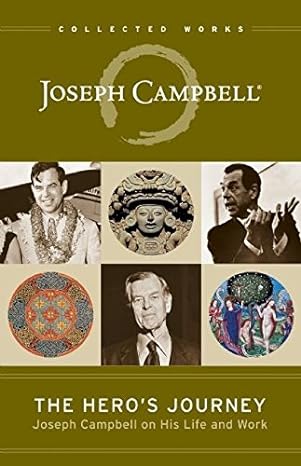
That’s amazing.
Here’s the exercise downloaded to me from above, and it’s super simple. I don’t know if you have any similar exercises that you do, but I just simply imagine from my heart center a big angelic golden explosion of light that sends any kind of negative energies, entities, energetic cords, or anything like that back to their source, to the infinite light, to what in Hebrew is referred to as Ein Sof, the endless, for transformation.
It takes two seconds. I don’t have to do a whole long, convoluted process. It just takes a couple of seconds. I just imagine it happening, and I feel it happened. Then I’m clear, and it’s beautiful. It’s amazing.
If a negative thought comes in at some point during the day, I’ll immediately do that. I’ll do that two-second thing and the exact point of origin of those thoughts I sent to the Infinite Light.
I love that. It reminded me of a similar exercise, more practical and less on the spiritual side. In this, it demonstrates equally well as yours does. It’s just what the power of the human mind has over the quality and perception of our lives.
It reminds me of an exercise I learned in my martial arts training when I was younger that I now use with my students. A subsect of the Optimize Yourself community is that I have a whole group of students learning to become Spartan racers and get physically and mentally in shape to run Spartan races and obstacle courses.
There’s an exercise I learned years ago that I tested with them called the black-and-white meditation. It was something that I learned as a way to bring a positive sense of energy to you very quickly if you’re either pessimistic or fearful. Essentially, all you do is a mindfulness breathing exercise. It’s very simple, and there are two components to it.
Whenever you’re breathing in, you’re breathing in through your nose, white positive light and energy. When you’re exhaling, you imagine all the black negativity inside you going out of your mouth and back into the world. The practicality of the exercise was that we were on the beach. It wasn’t cold. We’re in California, so it wasn’t that cold. It was probably in the 50s, it was windy, you were next to the water, and people were very uncomfortable.
They were all sitting there shivering in their coats. I said, “We’re going to sit down.” We’re talking 10 feet away from the tide. I said, “We’re going to sit in the sand, and we’re going to do a breathing exercise. We can sit down and do breathing exercises. Everybody just sit down, get comfortable.”
Whenever you’re breathing in, you’re breathing in through your nose, white positive light and energy.
I walked them through this exercise. Five minutes later, everybody was warm. It was the same wind, air temperature, and situation, but they were astounded by changing the energy coming in, going out, and visualizing it. They’re like, “It’s amazing. It feels like it’s 75 degrees right now.” That is the power of the perception of your mind.
You have the opportunity to create your reality or co-create it. You’re not creating it by yourself. Everything happens in collaboration with the Creator. You can’t take your next breath without him. But if you step into that knowing and that power, it’s not just about you controlling your physiology. You’re controlling the universe, the world. Your little slice of the multiverse, you’re the pilot of that, and you’re taking it in a different direction.
I’m a big fan of creating your reality and taking control of that. The angle I use is less of a faith-based or a spiritual one, but it comes from the perspective of most people I work with in creative industries. Many of them work in the entertainment industry, writers, editors, and directors, similar to my work.
They’re all good at storytelling. They all understand story structure and how to create compelling fictional characters, and they understand the basics of the hero’s journey. You have somebody in an ordinary world with a call to adventure. They have to step outside the ordinary world and what we watch. The reason we watch movies, we read stories, and we listen to stories is because we want to see somebody overcome obstacles to achieve their goals.
They’re all great at doing that for others or mass audiences. I helped them take those components but modify them to fit their story and life. That’s one of those moments that I’m like, “Oh, my God, it never even occurred to me. I’m on my hero’s journey and dealing with all the same benchmarks in the story structure, but I’ve never seen it that way because when you’re in it, you don’t have objectivity.”
With this idea of creating our reality, we can be our storytellers. It doesn’t mean it will all work out exactly how we want when we want it. But what happens, and this happens with my students a lot. You can relate to this, too, on the spiritual path. When we have this preconceived notion that this is the reality or the universe we want to create, and I want it to happen by this time, and it doesn’t, you’re like, “Oh, I’ve deviated off the path.” Sometimes, you have to realize, “No, actually, this is the path.”
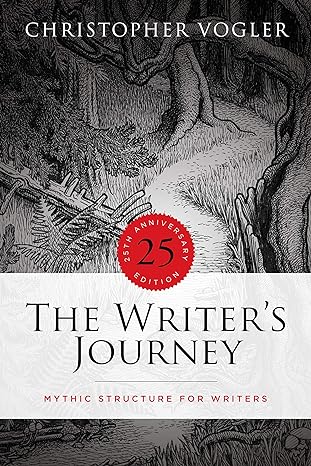
What you think isn’t the path is, and it’s a part of your story that you didn’t realize was necessary. Those obstacles, those failures, can either be failures, you went off the path, and things are wrong, or these were here for your benefit, for you to get stronger and have more perspective.
When you look at the obstacles, the challenges, and all of the things in your way, all right, well, this was put here for a reason, and I can either complain about it or I can use it as a learning experience for me to get stronger, well, then great. This is just what’s been put in front of me. It makes it much easier to manage just the vast chaos that life can become at any moment.
I had an interesting experience recently going through this. I certainly did not ask for this in the universe, but the universe decided it was time for me to deal with this. My father got very gravely ill. He’s in his 80s now, and my mom is—actually, today is her birthday. I’m not even sure I’m going to get this right, but I think she’s at today, either 79 or 80.
The point is that I got a call about a month ago. You have to get a plane ticket, and you need to be here tomorrow. It came during an intense busy period, with my business and company enrolling students for an entirely new semester. If I’d picked the one week of the 52-week calendar to say this would be the worst time to call me to drop my life and have to fly home, this would be the one that’s when I got the call.
I’m like, all right, this is my new reality right now. I can’t do anything about it. I’m certainly not going to say sorry, and I’m too busy. That was my new reality, and I had to manage it. I even had a conversation with my mom about two or three days in because that was just the beginning. I could write an entire movie about these two weeks of chaos.
At one point, she looked at me. She was like, “Where did this attitude of yours come from?” I’m like, “What are you talking about?” She’s like, “You’re just so calm. You’re just like, ‘Whatever happens happens, and we’re going to make it work, and we’re just going to deal with it.’” She’s like, “This isn’t you.”
I’m like, “Well, this is my new version because I’ve realized that I can either complain about this and think about how this is not where I was supposed to be this week, or I accept this as my reality. What positive things can I take from a negative and stressful situation?” With a different person, she’s like, “I don’t even recognize you right now, in a good way. That was just the practice of having to put my money where my mouth is.”
A great question that I learned from Ephraim Olschewski, a friend who has been on this podcast, asked his kids, are you complaining, or are you creating? What a difference that question can make for somebody who’s in the thick by wallowing in misery at the moment, complaining about something. Having that perspective shift is like, “Oh, I could do one or the other. Which one do I want to do?”
I’m a big fan of creating your reality and taking control of that.
A great example he gave was his son complaining and having a tantrum in the backseat of the car while driving to the gym, and his wife and his daughters as well. The tantrum was about him leaving his iPad at home, the boy. He wanted them to turn around and go back and get it. They were already halfway there, so he said no. And the boy went into a meltdown.
He asks his son, “Are you complaining or creating?” As he’s saying that, he’s motioning with his cell phone or with his iPhone the question. The boy realizes, “Oh, can I borrow your iPhone while you are working out and I’m in the playroom?” “Yes, you can.” Great example.
Yeah, I love that. I don’t have the same question, but use a similar exercise with my kids. He was a little bit younger, but my son is now 13, and my daughter will be 11. I have two teenagers in my house right now. There’s lots of complaining, whining, moping, and all the usual stuff.
Whenever they get negative, complaining about something, or whatever it is, I always ask them, which drives them crazy, “Is this an effective use of your energy right now?” Let’s say we’re stuck in traffic and we’re late. We’re going to be late for this thing. “Okay, is this an effective use of your energy?” “What do you mean?” “Can I change the traffic? Can I do anything about the fact that we might end up being five minutes late?” “No.” “All right, who do you want to be when we attend this event?”
“Do you want to be crabby and irritable, and the fact you’re five minutes late, which nobody cares about you, you’re going to walk into that space a completely different person with a different energy. You will put that negative energy out there, and people will absorb that? Is this an effective use of your energy right now?” “No.” That changes the conversation.
This is a question that I always ask myself because I’m human, and I get into these spirals just like anybody else. This is also a conversation that I’ll have with my wife, too, when we get in the middle of the day-to-day complaints and issues. “Is this going to matter in five years? Whatever this decision is that we’re debating, will we remember it, and will it matter in five years?”
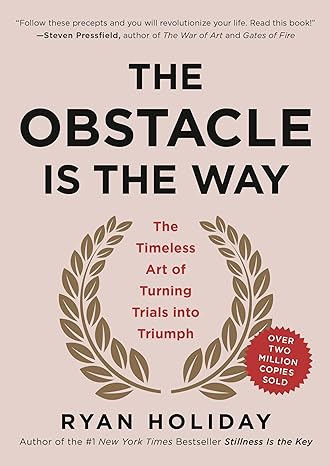
There are some things fit into that category, where whatever the decision is, if it’s a matter of—let’s say, we’re arguing over where my son will go to college. We’re not at that point yet, but I’ll project a little bit into the future. “Will this decision matter in five years? It will matter.” This is a good, effective use of our energy to find the best option to make sure we have the best education for our son.
If he’s going to miss one homework assignment for some class in seventh grade, that doesn’t affect his grade. “Is this going to matter in five years? Do you remember when he was in second grade, and we had the same problem?” “No, I don’t remember that happening.” “Exactly. It’s unimportant enough to remember because it didn’t change the trajectory or the course of anybody’s life. It’s not going to matter in five years. Why are we wasting our energy?”
So true. Another thing I want to share with you that I want to get your take on is that you were talking about The Hero’s Journey, so I’m guessing you’re a fan of Joseph Campbell.
Do you know Chris Vogler? He’s the writer of a book called The Writer’s Journey, essentially taking Joseph Campbell’s The Hero’s Journey and putting it into a practical framework if you’re an author or a writer.
I’m not familiar with that.
That could be a good fit for you and your audience as well. But I just had him on recently talking about The Writer’s Journey, the updated version of The Hero’s Journey.
That’s cool. I’ll check him out. I learned this from Jonathan Fields, who was amazing. He was sharing his journey of how he was battling with Tinnitus. He couldn’t get any reprieve from it. It just was an incessant suicidal ideation. He found this comforting quote. He used mindfulness meditation as well, and it helped him find himself and find peace.
Here’s the quote that he shared. “It is by going down into the abyss that we recover the treasures of life.” Remember, this is Joseph Campbell’s quote. “Where you stumble, there lies your treasure. The very cave you’re afraid to enter turns out to be the source of what you are looking for. The damn thing in the cave that was so dreaded has become the center. You’ll find the jewel, and it draws you off.” In other words, the cave you fear to enter holds the treasure you seek.
The first thing that came to mind was the title of a much more modern work based on many ancient works. It would be Ryan Holiday’s The Obstacle is the Way. Like I said, it’s this idea that you have this preconceived notion. This is the path that I’m on, and this is the destination. You deviate, or your perception is that you’ve deviated and ended up in the wrong place because something stopped you or got in your way. The obstacle is the way.

The treasure in the cave that you were dreading, avoiding, or whatever that might be, ends up being the thing that changes everything. I’ve designed my life in such a way that I have so many problems in it that I enjoy solving and that I’m not worried about when the problems come to me.
One of the reasons that I chose to pursue American Ninja Warrior is that it’s the perfect metaphor for life. People watch that show because they see everyday people confronting very physical obstacles, paired with the story of the real obstacles they have in life. It’s not about watching somebody who overcame cancer jump on a rope and go on a platform. It’s about seeing them visually, overcoming an obstacle that is metaphorical to whatever their real journey is.
I put as many obstacles in my life as possible so that when obstacles choose me, I’m prepared. I want an easier life, I want to eliminate as many obstacles and problems, and I just want things to be easy. That’s the worst possible way to design your life. You’re never going to eliminate all the problems.
The few that get close to doing that all say the same thing. My life is boring and comfortable; I’m tired of being comfortable and want a challenge. If I know my life will be filled with problems and obstacles, I want to choose the ones I love solving and overcoming. That is where you’ll find fulfillment.
What if you already did that? What if you did that before you incarnated, which is the concept of soul contract? You wrote the script. You co-created your reality, stepped into it, and then you forgot it because of the veil forgetting. That’s something I believe in wholeheartedly, and we chose this journey.
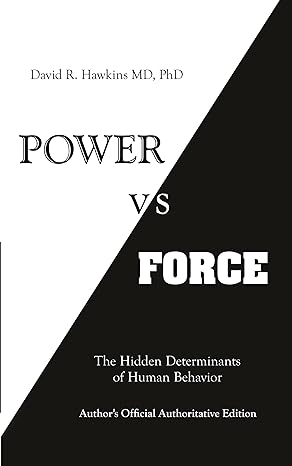
We can change it, even though we wrote it because we wrote many versions of the movie script that we wrote as well. That’s called timeline jumping. You can go to another version of the script like, “Oh, this one suits me better to where I’m at vibrationally now.” With faith, trust, and positive expectancy, boom, you are on a new timeline.
I love it. Now I’m going because I am a podcaster too. I will hijack your podcast for a second and ask you a question. You’re certainly further along in the spiritual side of the journey than, perhaps, even I am.
One of the questions I often have just about life, reality, and existence in general is that there’s got to be something more profound about intuition that I understand right now. My general hypothesis has been that, with as strong as my intuition is, there has to be a reason that I have such a strong intuition. One of them is, maybe I’ve already done this, or I’ve already done something similar to this. And like you said, I’ve just forgotten.
You talked about this a bit earlier, but how do you take all the spirituality and the journey you’ve been on and specifically frame and explain what we consider intuition?
My understanding of intuition is that it’s the still, small voice whispering into our consciousness. God, our guides, angels, higher self, and the unseen support team are guiding us. Something will pop into your head out of the blue; that’s a good sign of intuition.
There are three attributes to intuition. (1) It comes unexpectedly. (2) It comes in emotionally charged neutral. There’s no anxiety, fear, excitement, or anything. It just simply is. (3) It doesn’t jump to another thought, then another thought, and then another thought, like normally thinking of one thing, and then it leads to another. Ten thoughts later, you remember you need to pick up milk at the store. It just stays there, and it stays put. Those are the three main attributes that will help you to discern intuition from just your thoughts.
There’s a great book, and I interviewed the author of it. If you’re willing to go a little outside your comfort zone and have a guest who is a famous psychic medium, Echo Bodine wrote the book A Still, Small Voice: The Psychic’s Guide to Awakening Intuition. A really good book. I read the whole thing, and it’s very helpful.
Yeah, I love that.
Everyone is psychic. Everyone’s intuitive as well, and they’re different things. Psychic and intuitive are different. But once you tap into your intuition more and more, you realize how much you’re guided, and you’re just being carried down the river. You don’t have to swim it anymore. We talked earlier about the #hustle lifestyle. It’s the opposite of that. It’s amazing. It changes everything.
Through proper training, awareness, and understanding, your greatest weakness can become your greatest strength. Share on XEven though I don’t have a nearly specific framework or the vocabulary to talk about intuition, intuition is maybe what your other guests have. The one consistent thing that I found, which dovetails back to this idea of if you’re highly creative, highly artistic, managing the thoughts is very challenging, ADHD, all these things that we’ve already talked about, one of the most important things that I’ve learned to develop is my intuition, because I get a million and a half I have ideas every day.
I built analog and digital systems to capture and organize those ideas. But I’ve learned how to temper my excitement to execute things and go down all these rabbit holes until my intuition says, “It’s time.” The number one criterion is it just doesn’t go away.
I’ve got an idea for this product or this opt-in guide, or I should write this newsletter, nine times out of 10, the next week, I’m like, “Wait, what was that idea? I even wrote it down. Well, it must not have been that important.” But then, if there’s something that I can’t get out of my head, and like you said, it doesn’t change, it doesn’t go anywhere, it’s not emotionally charged, but it keeps saying, “This is where to focus next. This is the thing you need to execute.”
I’ve learned to trust that as opposed to, logically, I don’t know if it makes sense based on this, that, or the other thing, or “I’ve got too many other things going on. I’m too busy.” The voice sits there very calmly, saying, “This is what you need to focus on next.” Learning to trust intuition has guided me to many places where, had I either made rash decisions or used all logic, I probably would not have gone in the direction I did. Ninja Warrior was one of them.
I started watching this because my kids were into it, like, “Oh, this is so cool. You get to see athletes, regular moms and dads, and everybody conquering these courses. You can do this.” “Yeah, whatever. Okay, keep watching it. You can do this. That’s stupid, and I could never do this.”
Learning to trust intuition has guided me to many places where had I either made rash decisions or used all logic.
The worst of the worst of one is probably the second worst period of depression, anxiety, and burnout I’ve ever experienced. This was in late 2017. I call 2017 my lost year because, other than rolling out of bed to do the minimum amount of work to make sure that I had a paycheck and could support my family, I accomplished nothing, and it was a horrible year.
I will never forget this image of me sitting on the couch watching Ninja Warrior, vastly out of shape, overweight, over 25% body fat. I had a giant bowl of popcorn on my stomach. In the popcorn bowl was Oreos. It was Oreos mixed with popcorn, looking at the TV and saying, “I’m going to do this.” That was intuition. There was no logical reason that said I should be, but my intuition just kept saying, “You could do this. You can’t do it yet, but you could do this, and this could be you.” That intuition just never stopped. It wasn’t incessantly shouting. It wasn’t like this limiting belief or this voice. It was just this is the next stage of your path.
I woke up on January 1st, 2018, and I said, “All right, it’s day one of the ninja warrior journey.” Little did I know what a tremendous impact it would have on the quality of every aspect of my life, but it’s because I listened to that voice.
That is so cool. Thank you for sharing that. It is such a hallmark of intuition that it is emotionally charged and neutral. You didn’t have any fear or anxiety arrive with that thought. It’s just simply: you can do this. It never went away.
It wasn’t like that. It wasn’t like, “Get off your ass and do it.” It was none of that. Like you said, it was just very neutral. “This could be a part of your life, and you could be here.” I just kept hearing it, kept hearing it, and kept shrugging it off.
Here’s where it gets really interesting; others say it to me. People would say, “Oh, dude, all the Spartan stuff you’re doing, you should do American Ninja Warrior.” “No, I could never get in. That’s not for me.” Even the outside world was dropping the same hints between intuition and the outside world.” Eventually, I’m like, “There’s got to be something to this.”
It gets really weird when you start seeing the cracks in the matrix. The glitches show up like somebody says something they couldn’t have known. Someone else confirms it, repeats it, or whatever. These are not coincidences, and they’re orchestrated from above.
Yeah. I’ve had that experience a lot lately. It happened twice over the course of two days, where there was somebody I hadn’t thought about for years. All of a sudden, I thought about them less than 12 hours later and got a message from them. I didn’t send anything out there, but there’s got to be something to this because it keeps happening.
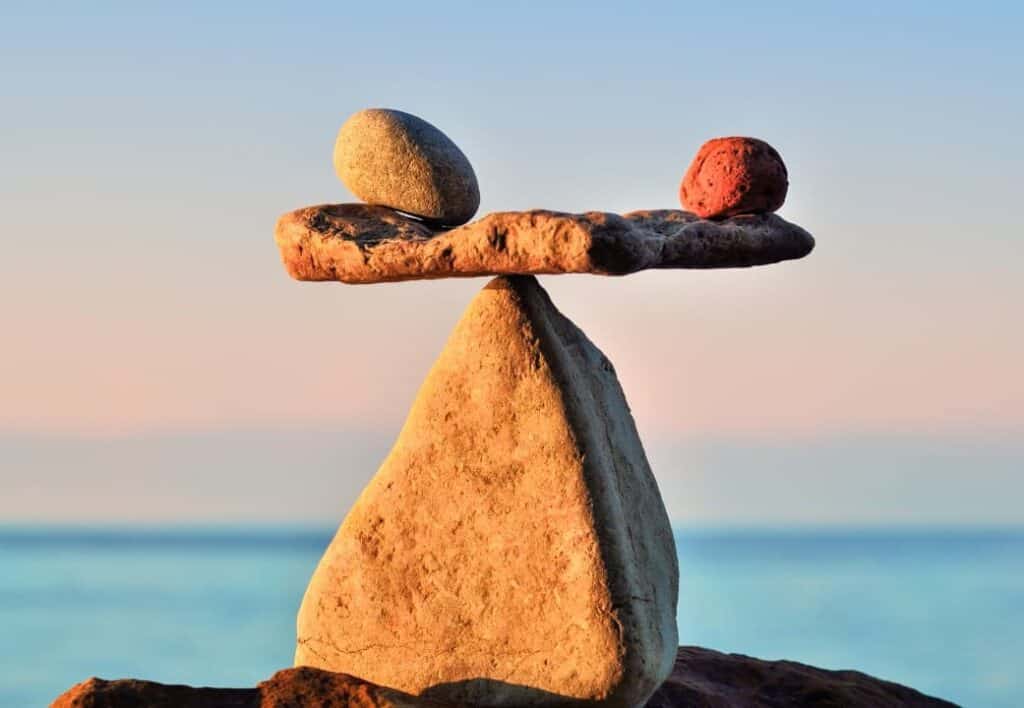
We’re all connected. The illusion of separation is an illusion.
Yeah, very much so.
Yeah. It’s so fun. I love this conversation. You’ve done American Ninja Warrior twice now.
One caveat I want to throw out there. Anybody that’s like, “Oh, two-time American Ninja Warrior, I want to watch it, I haven’t been on the show. I have participated on the course, and I’ve also been a course obstacle tester.” But it’s a TV show and not an athletic competition, so the number of people they shoot is more than double the amount that airs on television.
Like any other casting call or audition, they take your story. They couple it with the quality of your run and decide who goes on TV and who doesn’t. I know people that have hit buzzers that have never been on TV.
I’ve never had a buzzer. Frankly, I haven’t done very well. If I were a producer on the show, I wouldn’t have cast me and put me on the show, either. If anybody’s looking for my clip, it doesn’t exist yet. It will exist, but I’m still working towards it.
That last clincher is getting on the show. But as far as being in that world, surrounded by that community, I’ve been on the course three or four different times. I haven’t actually made it to the show yet. So if anybody can’t find it, that’s why.
Okay. I will root for you here in Miami, and I’m sure people will also do the same. That’s awesome. I know we’re about out of time here, but I want to share a tool with you and hear if you have already come across it or utilized it. It pairs very well with intuition, the intuitive hits that come. It’s called muscle testing. Are you familiar with it?
I am not, no. It sounds fascinating, though.
It is so amazing and powerful. Another term for it is applied kinesiology. One of the most famous books about it is called Power vs Force by David Hawkins. I don’t know if you’ve heard of that book.
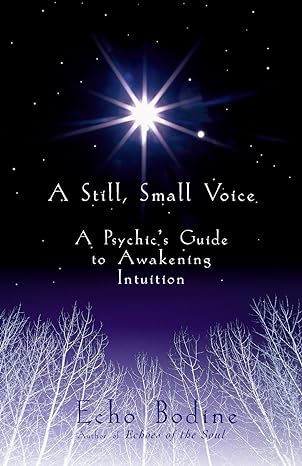
I haven’t, but I’m already very intrigued.
You check to see if the thought you had, the thing you want to test, is true or not from the perspective of your higher self, from the other side of the veil. You can do that on your own without utilizing another person because muscle testing usually involves two people. When somebody is testing you, you hold out your arms straight, and then somebody pushes on your wrist. If you hold your arm out straight and resist with the same level of strength, and it doesn’t go anywhere, that test is strong.
If you have that thought or say that thing, and they test you on a test week, then your arm falls down. It’s like, “Hey, that’s weird.” I used the same level of resistance, and I couldn’t hold my arm up. That is powerful. The way you do it by yourself is you could make an okay sign. You put your finger in between the circle from your other hand, and then you—I’m narrating it for our listener who’s not watching the video—push against that finger, the weakest point in the circle, where the finger and the thumb are.
This is testing strong. I’m going to think of something that’s not true, and that test is weak. It’s the same level of force. You can do this from anywhere or at any time. It’s just like, “Oh, should I buy this food? I don’t know if it’s going to be healthy for me. Should I buy the supplement? Or should I go up to this person I want to introduce myself to?”
Should isn’t the right word to use, but it brings about the most benevolent outcome for me to go and interrupt this person and introduce myself, or whatever the thing is that you want to test. That can be another tool in your tool chest.
Yeah, I love that. I’m going to test that.
It’s awesome. Read that book or listen to the audiobook Power versus Force to get more context. It’s something I use daily, and it’s available all the time. Whereas if you’re waiting for intuition to arrive because it comes in unexpectedly, you’re like, “I need an answer here. Do I buy this house or let it go?” “I don’t know.”
I like that. I’m going to put that into practice.
Awesome. This has been fun. By the way, we have even more things in common that I didn’t mention. We both went to the University of Michigan.
About that, I love it.
I have a degree in Cellular and Molecular Biology. Yup, go blue.
Wow. It is much more fascinating than just watching movies and reading papers.
I don’t know about that. One last quick question before we wrap. Christopher Rush, who is he or was he because you directed a documentary about him?
Yeah. I’ll give you the shortest version because I want to be very respectful of your time. Christopher is really the beginning of this journey. The origin story about making the movies at home and whatnot with my brother is one part of the story.
The real origin of Optimize Yourself and all the work that I do was meeting Christopher Rush, who, in the shortest package I can get possible, was the first quadriplegic to become a licensed scuba diver. Since then, he started an entire industry of helping those with physical disabilities to become licensed scuba divers,
He was a friend of mine at the University of Michigan. And I knew very little about him because he was humble. But when he unfortunately passed away, spoiler alert for anybody that watches the movie, I was at his funeral service, and people were talking about everything he’d accomplished. Becoming the first quadriplegic who was a licensed scuba diver was low on the list of things he accomplished. I’m like, “Who in the world was this guy?”
The amount of obstacles that he had to face in his life, how he overcame them, and the mindset and the level of optimism that he had, there must be something to this. I looked around the church that day and said, “Man, this story can’t end here. Somebody’s going to have to tell his story. It’s going to have to be me, isn’t it? I’m going to have to be the one.”
That was way back in 2007. I had a eulogy written that day, and I scrapped it. I went up in front of the entire crowd and said, “I’m just bowing to all of you today.” This is not the end of Christopher’s story. I will do my best to share his accomplishments, his mindsets, and how he approaches his life with the entire world to help others overcome obstacles to achieve their goals.
We need to dedicate ourselves to optimize both our good and bad experiences to live fulfilling lives. Share on XIt will be called Go Far because that was a motivational program he was building to help people set goals, overcome obstacles, focus on the right things, take action, and reflect. This is the place to start. Here I am in 2023. now teaching and coaching the Go Far framework that he originated years and years ago. But essentially, I am the person I am because of the day I met Christopher. That’s the shortest version of what could be a much longer story.
That’s beautiful. Christopher appreciates your love and support, and for spreading his message and legacy.
Yes. Going back to the idea of spirituality and their being a higher power, there have been so many things that have happened along the journey of this film that defy any logic whatsoever, where you just think the project is going to fail, it’s time to quit, this isn’t going to work out. Boom, you get a message, a phone call, whatever it is, and we just overcame the next massive obstacle. I can’t explain it consciously, but I know that his energy and he has something to do with continuing the momentum that this project has.
Yeah. He’s in your field.
Yes, I couldn’t agree more.
Amazing. Thank you so much. This was a great conversation and very inspiring. If our listener or viewer wants to work with you, get some coaching on their career, and even do American Ninja Warrior or work with you on a documentary or something, how do they get in touch?
The simplest place to find me is my website, optimizeyourself.me. I’m very easily reachable just via the contact form. I’m on Instagram and Facebook. I’m certainly not at the influencer level. I don’t have hundreds of thousands or millions of followers, but I am reachable via those platforms as well.
Anybody interested in coaching, learning to better tell their story, or wanting to better organize their time or effectively use their energy, I could talk about this for days, hours and weeks. And that’s basically what I do. I’m happy to connect with anybody and am very easily reachable and highly responsive.
Awesome. Thank you so much. Thank you, listener. Please go out there and work on your body, soul, life, family, and community. Optimize yourself, and it will change the world around you. We’ll catch you in the next episode. I’m your host, Stephan Spencer, signing off.
Important Links
Connect with Zack Arnold
Apps/Tools
Books
Film
People
Previous Get Yourself Optimized Episodes

